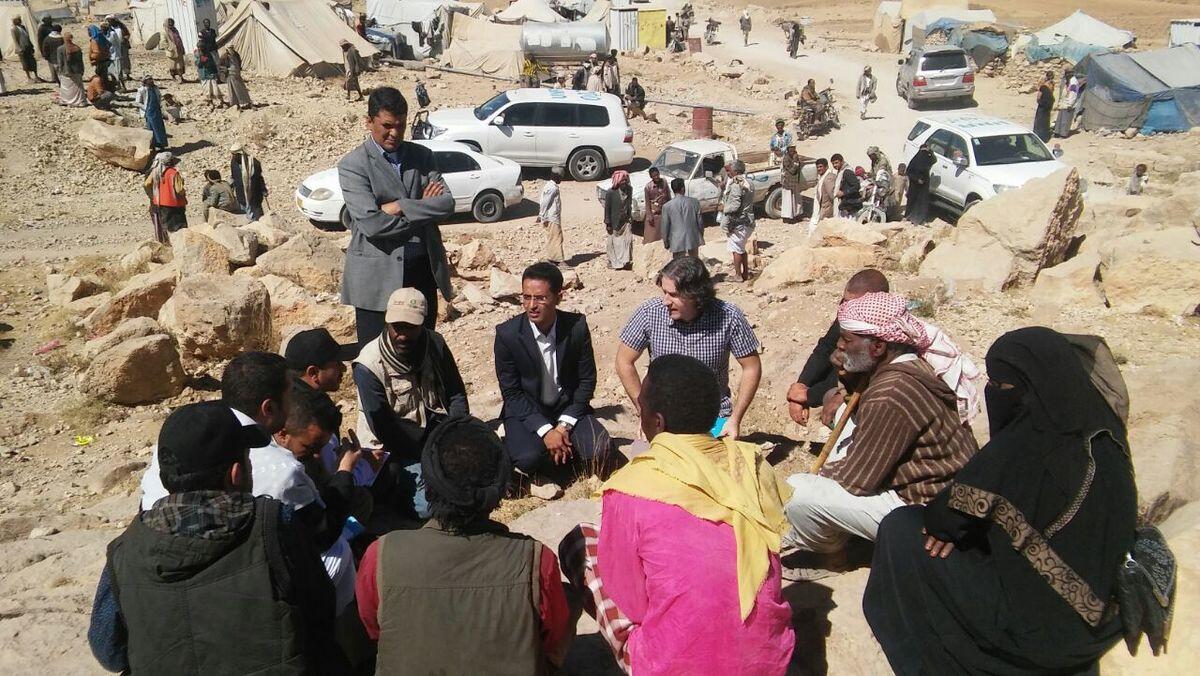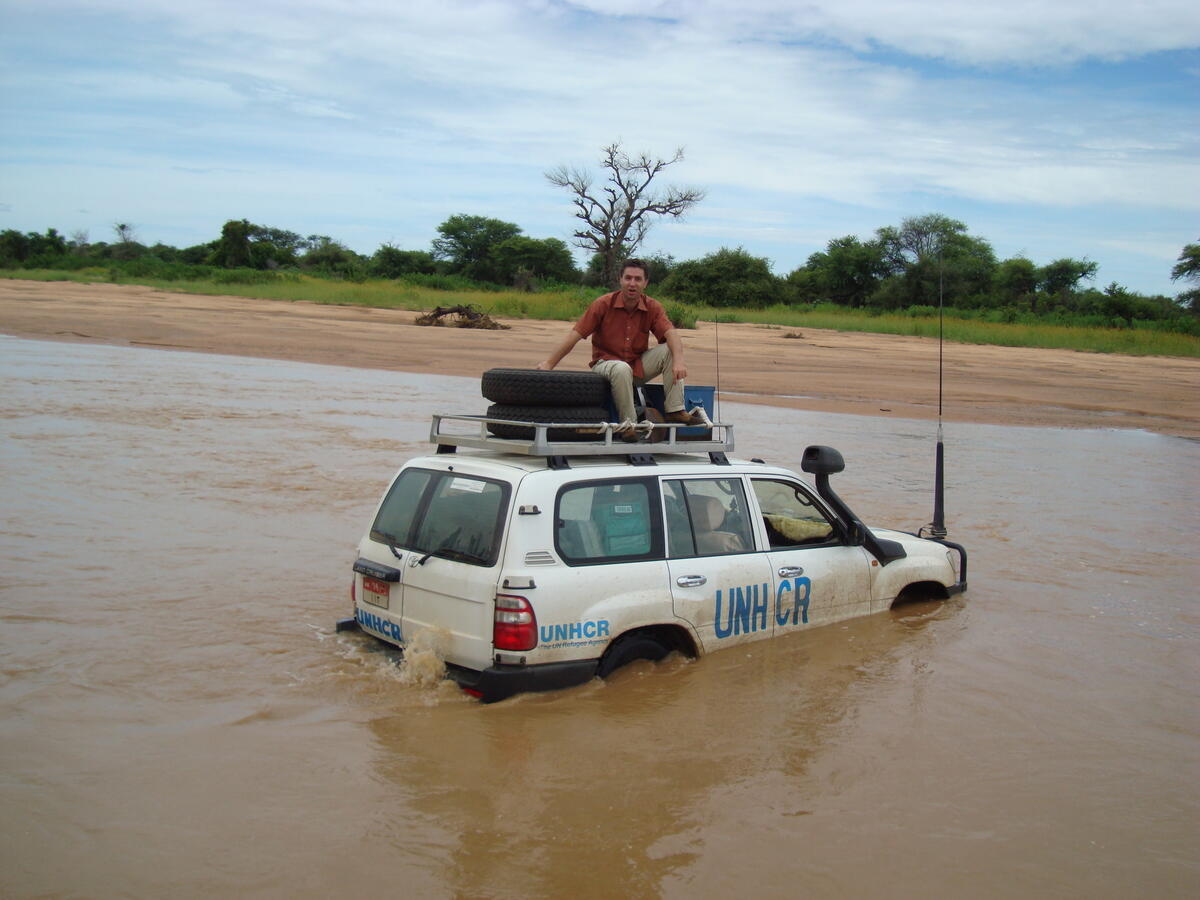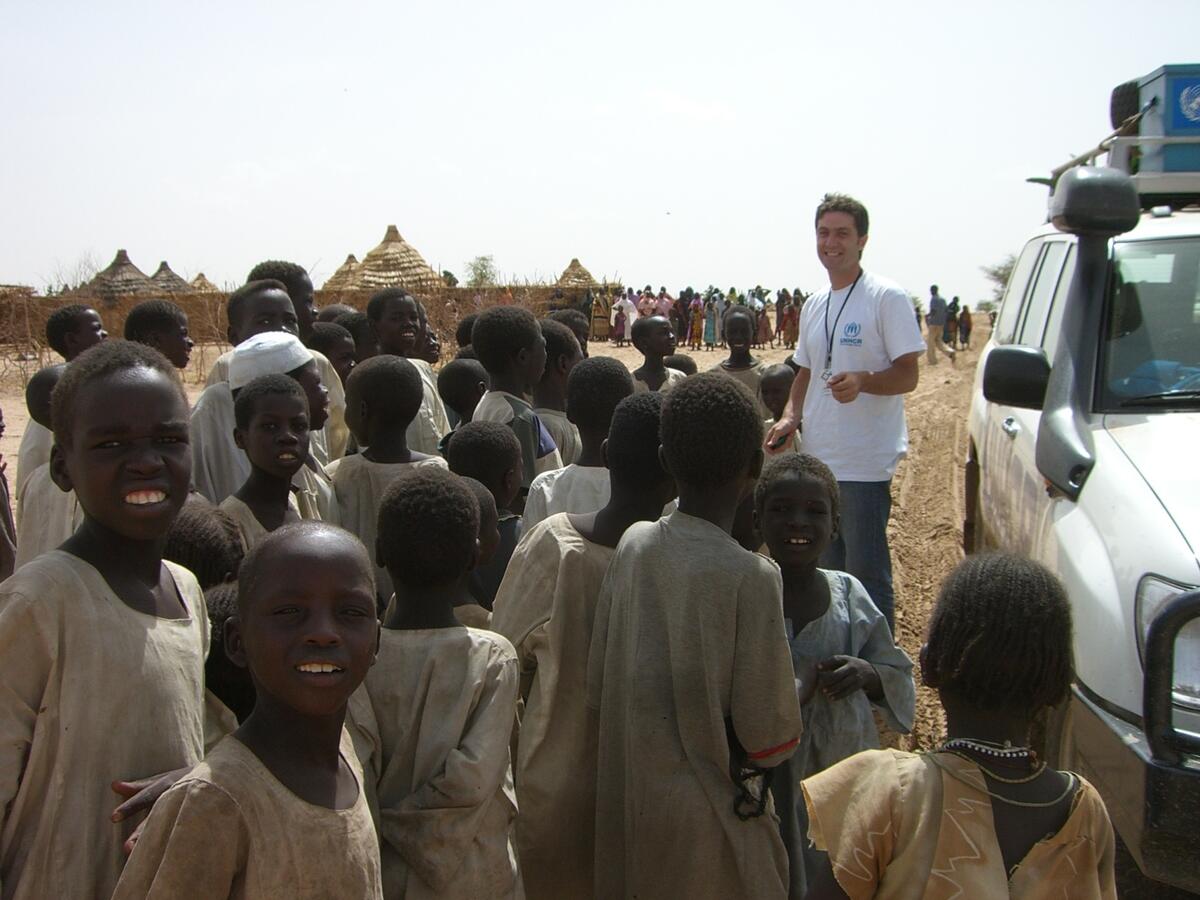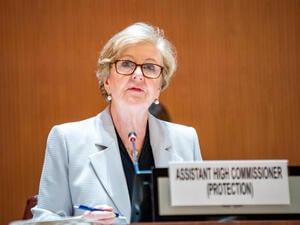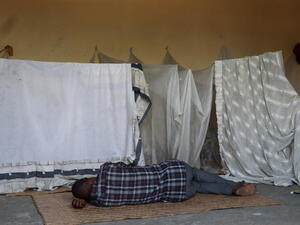'I have always felt I should be a humanitarian worker'
Name: Adem Shaqiri, 41, from The former Yugoslav Republic of Macedonia.
Job title: Field Officer, Yemen, in charge of providing protection and aid to internally displaced people, or IDPs, in six governorates.
Years at UNHCR: 10, working in West Darfur/Sudan, Libya, Lebanon, Jordan, and at headquarters in Geneva, Switzerland.
Why did you become an aid worker?
I’m from The former Yugoslav Republic of Macedonia, and during the Kosovo conflict I witnessed first-hand what it’s like to be displaced or a refugee. There were buses arriving in my village one after the other, every day for weeks. They brought women, children and elderly people without anything, just a few bags with their clothes, whatever they could grab when they left Kosovo. A lot of people from the village, me and my friends, were distributing food and water when the buses arrived. The idea of being an aid worker came from that moment when you give something away to a person that needs it. You see their face, the satisfaction. Since then I have always felt I should be a humanitarian worker.
Most rewarding/challenging thing about your job?
Three months back, I went to Mokha. We were responding to IDPs who were literally living under the trees in the heat. You can see the faces of people when they receive assistance, even if it's just a mattress and a sheet, because they literally did not have anything. But the challenge is that it’s never enough. The number of people in need is just too high. There are over two million people displaced. The most challenging part is that you can’t help all of them. When there are two families in need, you have to choose the one that is most vulnerable.
What was the best day that you had at work?
Back in 2012 I was in Tobruk, Libya. Refugees from Syria would arrive at the border, and I was there to deal with issues of access. I was told by officers that there were 16 unaccompanied children, all between 12 and 16, who were completely alone. When you see children in difficulty, you always relate it to your own children. I am very sensitive to that. We managed to get all these kids to Tripoli within a few days, and then we reunited them with their families. That was one of the happiest days I have had with UNHCR. When they saw their relatives again, they were so happy.
What was your worst day at work?
My worst day was working in one of my previous duty stations. National security officers had arrested a 15-year-old IDP who had stolen a sheep to feed his family. They had beaten him so badly for three or four days that he had internal bleeding. When I heard about the case, he was in the local hospital. I immediately went with the local government officials to try to have the kid transported to another hospital in the capital so that he could receive proper treatment. But the national security officer threatened the doctors and ordered them not to release him, even though UNHCR had paid for the transportation. I tried so hard to get this kid out of that hospital for two days, and at the end, the kid died because of the internal bleeding. If he had left the hospital, his life would have been saved. I still remember that kid. When I talk about him, I cry. But it is situations like this that push you, and make you more determined to do your job.
The UN Refugee Agency works in 130 countries helping men, women and children driven from their homes by wars and persecution. Our headquarters are in Geneva, but most of our staff are based in the field, helping refugees. This profile is the first in a series highlighting our staff and their work.


